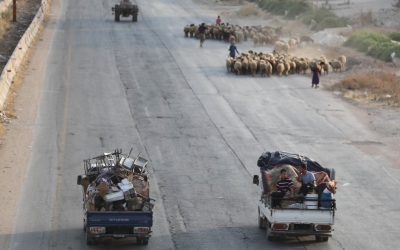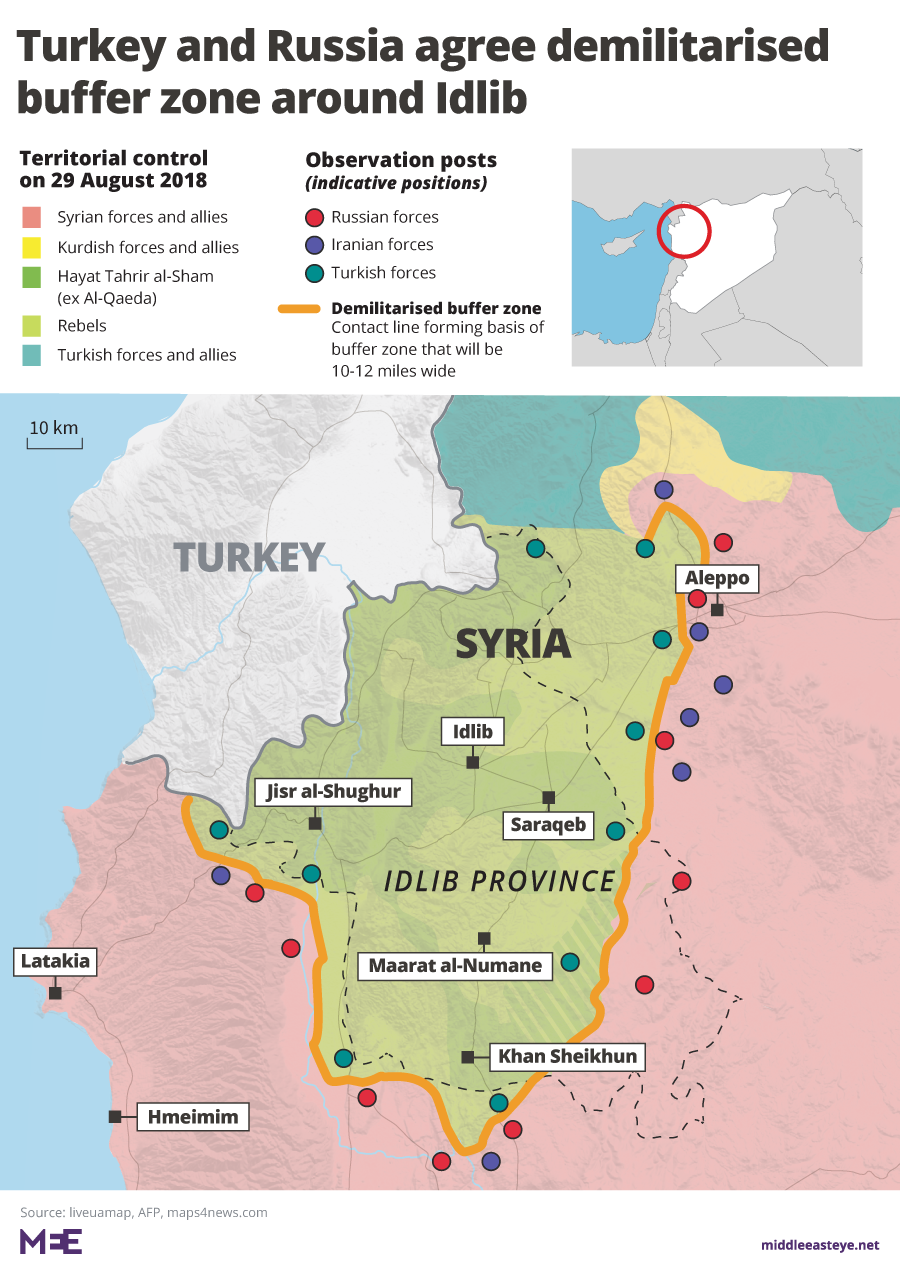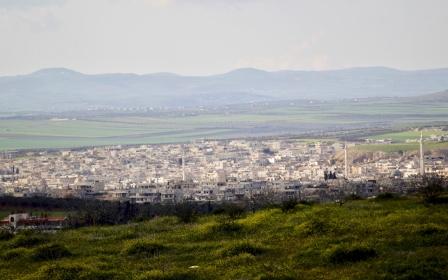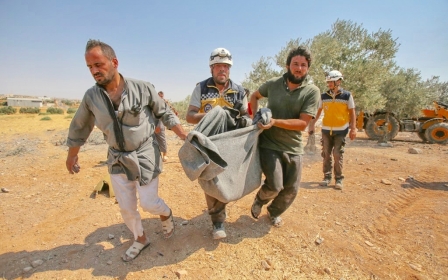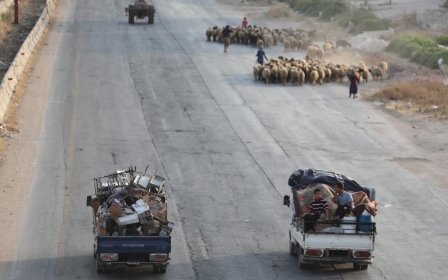Tensions soar as Syrian government strikes Turkish military convoy in Idlib
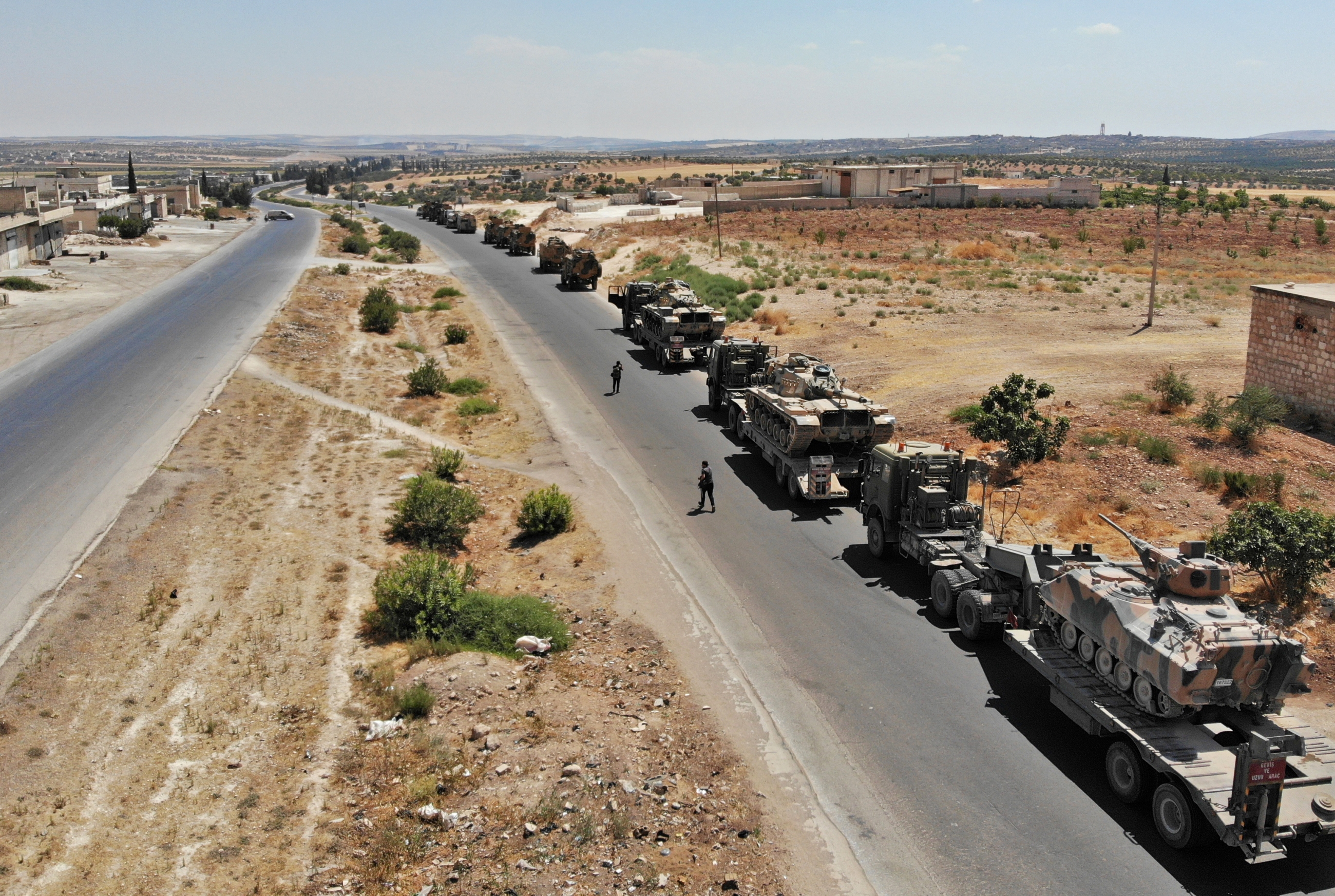
A Turkish military convoy heading through Syria's rebel-held Idlib province was intercepted by pro-Syrian government air strikes on Monday, activists said, risking open confrontation between the neighbours.
Turkey condemned the attack as a violation of Ankara’s agreements with Damascus ally Russia.
It said the strikes, which pounded the road ahead of the convoy, were a threat to the supply route to the Turkish observation point in Morek, a town located 9 kilometres south of the key town of Khan Sheikhoun.
The Syrian Observatory for Human Rights activist group said a rebel vehicle leading the convoy was struck by a Russian air strike just outside Maaret al-Numan, 15 kilometres north of Khan Sheikhoun, killing a fighter from the Turkey-backed Faylaq al-Sham group.
The Turkish defence ministry said in a statement that Russia had been informed in advance about the convoy, adding that the attack killed three civilians and wounded 12 others. The nationalities of the casualties were not reported.
New MEE newsletter: Jerusalem Dispatch
Sign up to get the latest insights and analysis on Israel-Palestine, alongside Turkey Unpacked and other MEE newsletters
The tension comes amid an offensive by pro-government forces against militants and allied rebels in a bid to capture Khan Sheikhoun, which has been outside of government control since 2014.
Late on Monday, Reuters reported that Syrian government forces and their allies entered the town, seizing part of it as ground battles raged inside, a war monitor and a rebel source said.
Earlier in the day, citing a foreign ministry source, Syrian state media reported that Turkish vehicles loaded with munitions were deployed to support rebels fighting to halt the government advances on Khan Sheikhoun.
Mohamed Balaas, an activist living in Maaret al-Numan, told Middle East Eye that two convoys made up of some 30 armoured vehicles each, including tank carriers, crossed into northwest Syria in the early hours of Monday.
Balaas said the convoys had moved slowly on the strategic Damascus-Aleppo highway because of the intense bombing targeting their route.
The activist added that the convoys’ objective was to set up a new observation point in Khan Sheikhoun. As part of a de-escalation deal agreed by Damascus's ally Russia and rebel-backer Turkey last year, Ankara has set up several observation posts along the frontline.
“The warplanes did not directly target the convoys, but was instead aiming at blocking them from reaching Khan Sheikhoun,” Balaas said.
Ahmed Jomaa, a civilian living in an area near the highway, said he believes that the new observation point would be established to support the supply lines to Turkish positions near the town of Morek.
Government forces have advanced on the southern border of Idlib province, the last rebel-held stronghold in Syria, over the past week and took control of the edges of Khan Sheikhoun on Sunday.
More than two dozen civilians have been killed in the escalation of violence over the weekend.
“I hope these convoys were sent to save Khan Sheikhoun and the civilians from government forces and their advances,” Jomaa told MEE, using a fake name for security reasons.
The government intensified its campaign in the country’s northwest in April despite the Russian-Turkish de-escalation agreement designed to stave off a pro-Damascus assault that the UN warned could result in a humanitarian catastrophe.
Some three million people are trapped in Idlib and its environs, around half displaced from elsewhere in Syria by the fighting.
Most of Idlib province and parts of neighbouring Hama, Aleppo and Latakia provinces have been under the control of Syria’s former al-Qaeda affiliate Hayat Tahrir al-Sham since January. Other rebel groups backed by Ankara also operate in the area.
Four months of violence in Syria's northwest has killed more than 850 civilians, according to the Observatory, and has displaced more than 400,000 people, as reported by the United Nations.
AFP and Reuters contributed to this report.
Middle East Eye delivers independent and unrivalled coverage and analysis of the Middle East, North Africa and beyond. To learn more about republishing this content and the associated fees, please fill out this form. More about MEE can be found here.


